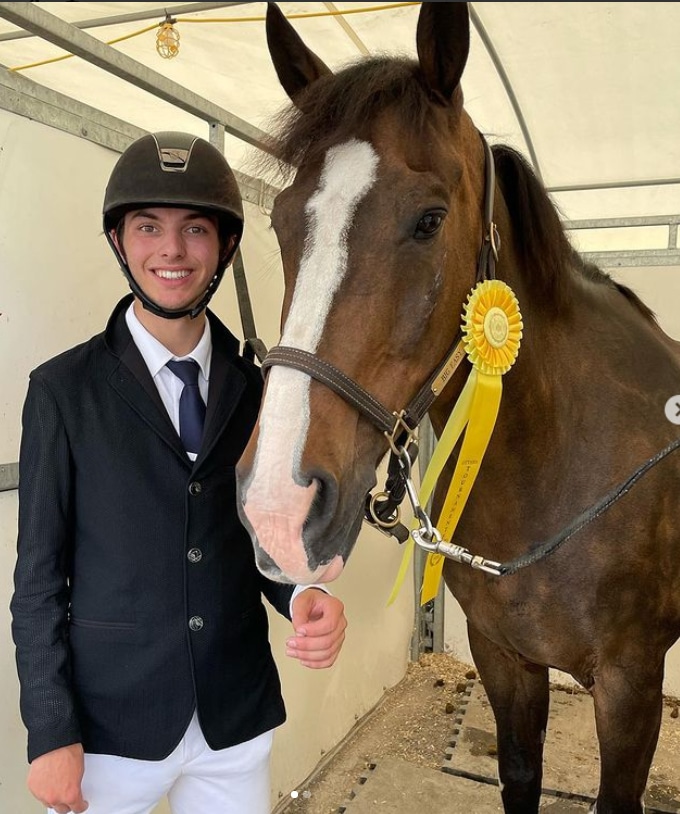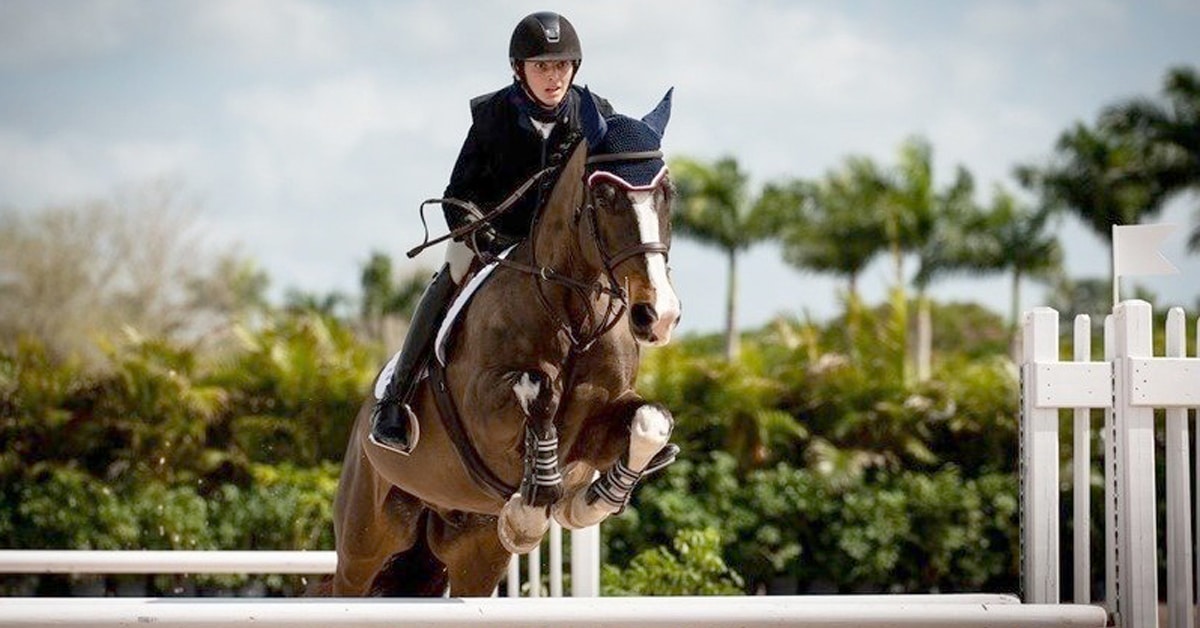Like many young riders, Jack Goldberg, 17, has big aspirations. Although he has cerebral palsy, the result of a stroke he had in utero, and has partial paralysis on his right side and scoliosis, it hasn’t deterred him from competing in hunter and jumper rings in Canada and the U.S.
As no competition yet exists for para show jumpers in North America, Jack competes against able-bodied riders. However, the Ottawa teen is determined to have para show jumping recognized as a discipline in North America and to become an official sport of the Paralympic Games. He started an online petition in October to garner support and it has collected about 3,500 signatures so far. He plans to send it, along with emails, to governing bodies such as Equestrian Canada, the United States Equestrian Federation and the FEI. Those supporting his quest include his coaches – Canadian Team members Amy Millar and her father, Canadian show jumping legend Ian Millar.
Jack has been riding for 11 years and in 2015 started competing in the pony hunters, collecting many top ribbons and a provincial championship. His disability created challenges he has had to adapt to. “I can’t put my right heel down and have to focus on that,” Jack says. His stirrups have been modified to help and his reins have a loop in them as it’s hard for him to grip with his right hand.
His love of horses came from his mother, Whitney, who grew up barrel racing in the U.S., and his sisters Grace and Claire, who have had successful junior careers including competing at the Royal Horse Show in Toronto. “They were my inspirations when I was younger and looked up to my older sisters. Our love of horses came from Mom. I am endlessly grateful for Mom, Dad and my sisters as even when I didn’t believe in myself, they did.”
He started riding at age six in Ottawa with hunter coach Taylor Brooks, who also coached his sisters. He says a lot of the ideas for adapting to his disabilities came from her and his mother, such as using Velcro to secure his boot to the stirrup.
“Most sports are so focussed on able-bodied people and very restricted,” Jack says. “Everyone in the riding community has been so accepting and I don’t think I would have found that in the other sports worlds.”

Jack and Big Easy in Ottawa. (Jack Goldberg Instagram)
He started riding on one of Taylor’s horses. “Taylor would put herself out there and when I started trotting, she would run around the arena beside me and help me move my arms and legs to get to the place where I could canter.”
By age 9, Jack was eager to compete and for two years he had the ride on Teletubby Express (Po), a strawberry roan pony, in the short stirrup division. “Partnering with the pony as a little boy was so cool and that first show season gave me the feeling I belonged somewhere.”
From there, he moved on to a leased medium pony, Royale Glory, and at age 11, he and ‘Roy’ were provincial champions. “That was a defining moment in my riding career,” Jack recalls. “At the championships, we had all top 10 finishes and ended up overall champion. That ignited the fire and pushed me to keep going.”
Jack’s next mount was Dream Come Blue that he rode at the Royal and pinned in every class in 2017; then he rode his sister’s large Welsh pony Cedar Spring Pen Pal for the modified large pony division.
At 13, Jack started having seizures and was diagnosed with epilepsy. About the same time, he had surgery on his femur and had to take a year off from riding. That’s when he learned about the para equestrian movement and decided he wanted to try the jumpers. Jack moved to Millar Brooke Farm in Perth so he could further those aspirations with the Millars.
“I was so astonished and overwhelmed with excitement as everything I’ve ever dreamed about is not only in front of me, but the Millars are helping to improve my riding,” he says. While Amy and Ian are his regular coaches, Canadian Team member Jonathon Millar and his wife Kelly Soleau also help him.
Amy Millar says while the general philosophy with riders is “if you’re going to ride, you’re going to fall,” they had to rethink that to prevent Jack from falling. He wears an air vest and the Millars have been very selective about choosing safe, kind horses for him to ride.
“The more time you spend with Jack, you see that he has really good balance and good horse sense,” Amy says. “He has the ability to calm a horse.” She says he’s an excellent student who is very focussed. “He’s on a mission and when he arrives, he’s there to do it. What’s wonderful and refreshing is while everyone loves to win, for him it’s as much about learning to ride better and develop a bond with the animals.”
After coming to the Millars, Jack continued in the hunter ring for two years, riding the Hanoverian gelding Vurtual in the children’s hunters. “Chewy was such an amazing horse and improved my riding in many ways. He was understanding of my mistakes.” Last year with Millar Brooke, Jack got his first experience competing at the Wellington Equestrian Festival (WEF) on a leased ride, Big Easy, the horse that introduced him to the faster pace and technical demands of the jumper ring.
“Jack having Big Easy made us all believe he could do the jumpers,” Amy says. “This year, he is moving up to the 1.10 metre classes. Working with Jack has made me a believer and proved to me he’s capable and it can be safe.”
As well as Ontario and Florida, Jack also competes in Kentucky. He has two new horses, Clementine RS and Fanatieker (Fred), he’ll be competing in 2022. At the same time, he’s working to raise awareness of para show jumping.
Jack would like to see a North American system modelled after Great Britain’s successful para show jumping system; France and the Netherlands also have para show jumping classes. Amy Millar says it will take one small step at a time, as more data has to be collected and standards developed. Organizers of Angelstone and Wesley Clovers Park shows have agreed to hold demonstration classes in the future if enough para riders are interested.
“The first step is to find any other athletes that want to part of this,” says Amy.
“I have partnered with an American rider and we are trying to show everyone we can do this,” Jack says. “A lot of people focus on the disability, but it gives us strength. We have extra challenges and we have to adapt to them, but para riders have mental strength. We are mobilizing and showing we can ride and be successful in the jumping ring.”
He’s been delighted by the response to his petition. “The support [for the petition] blew my mind. It has been truly heart-warming. Para-equestrians want this so much. It would be so fun and amazing to see people participate and be successful.”

